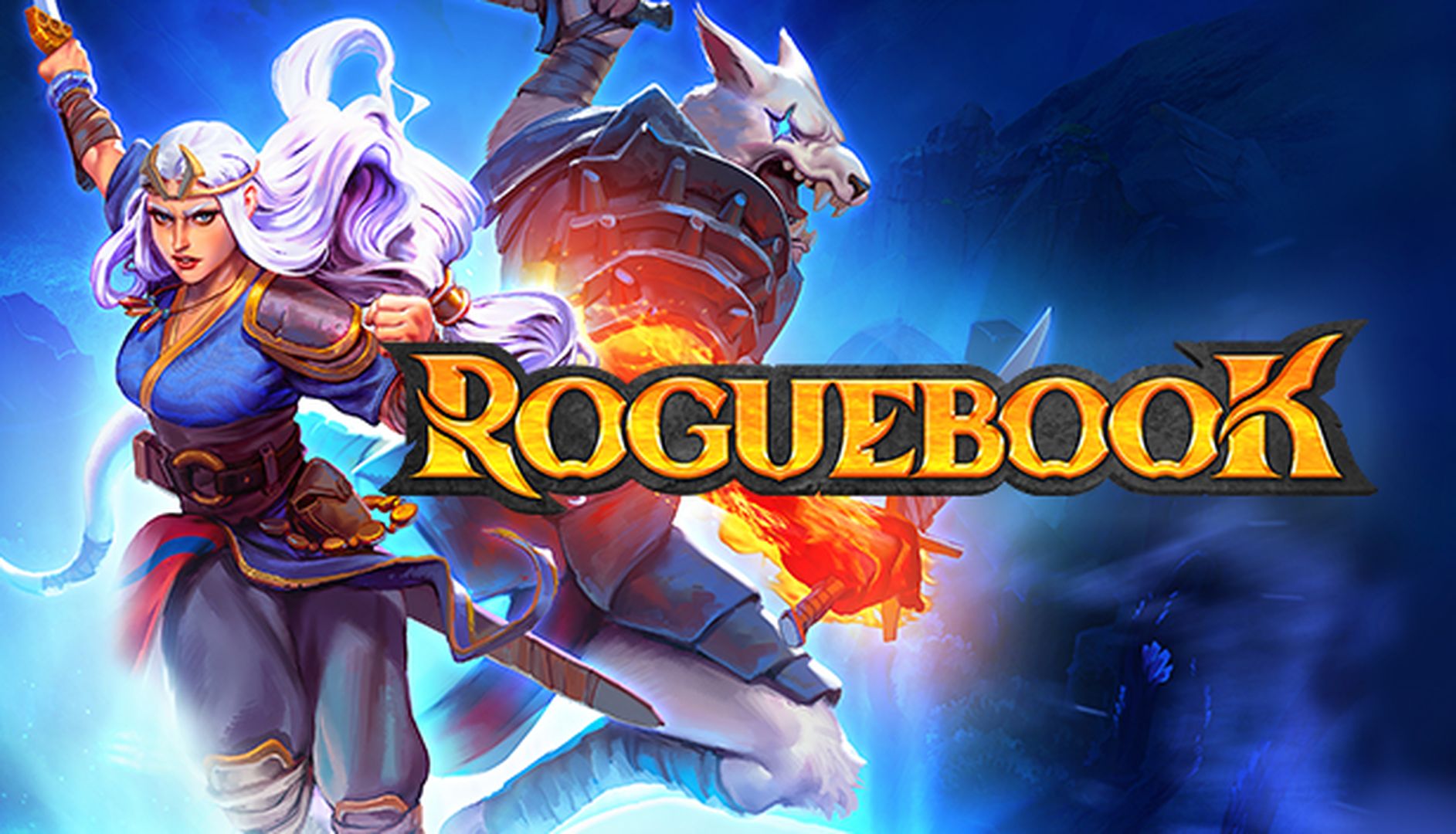Roguebook
Developer: Abrakam Entertainment
Publisher: Nacon
Platform: Windows PC
Release Date: 17 June 2021
Price: $26.99 USD/$39.95 AUD – Available Here
Video Review
Overview
Roguebook is the latest deck builder from Abrakam Entertainment. This time around, the developers have partnered with Richard Garfield, the creator of the legendary card game Magic: The Gathering. Roguebook mixes elements rogue-like mechanics, deck builder gameplay, and a splash of Civilization exploration.
Story
Players are trapped a book and must fight their way out. Being a rogue-like, the game is understandably thin on story. There is a little attempt to world build through short discussions, events, and character descriptions, but it is a sparse attempt.
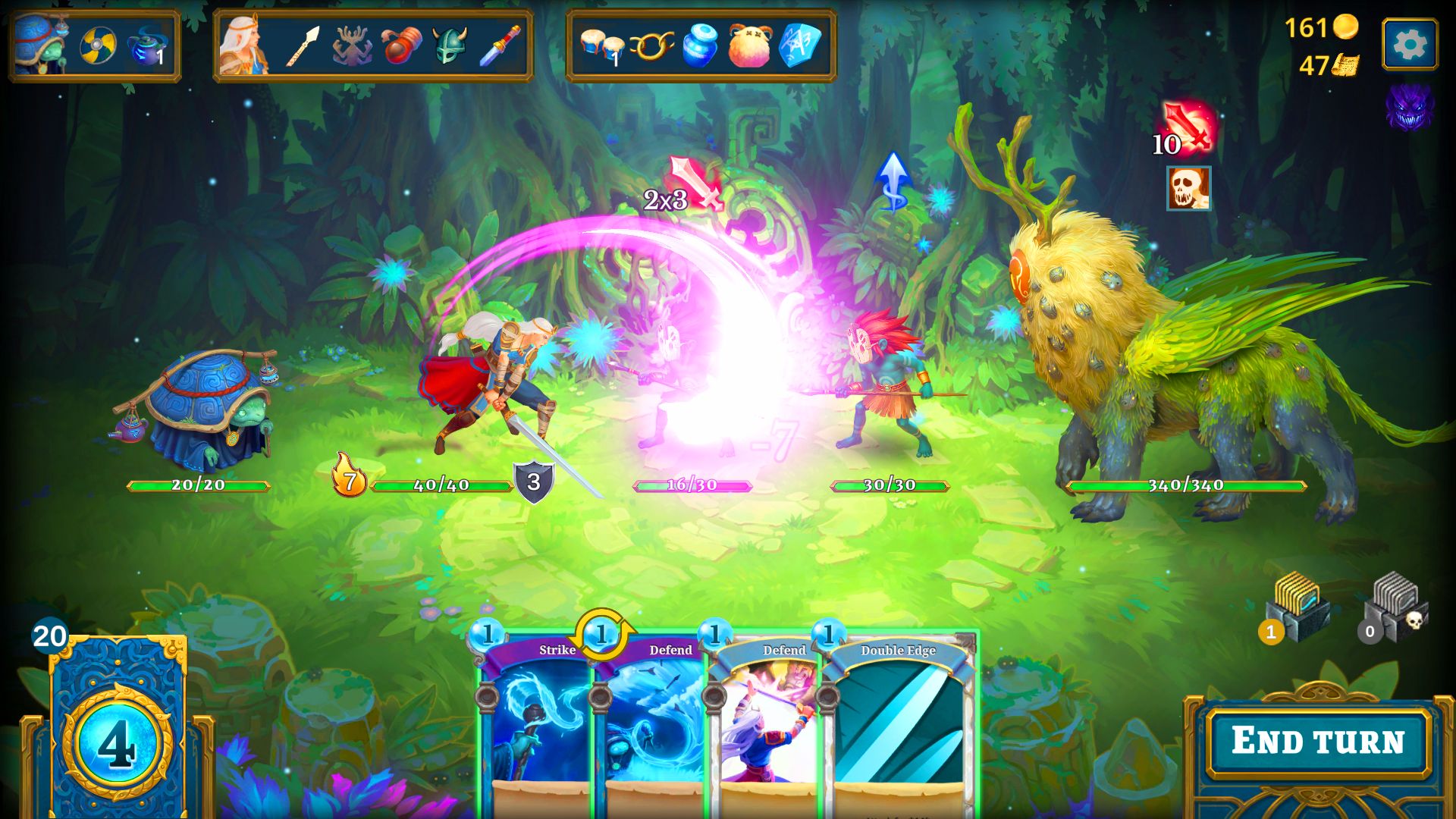
Gameplay
Roguebook First 30 Minutes of Gameplay
Roguebook is in the same vein as other rogue-like deck builders like Slay the Spire and Monster Train. Players need to conquer three levels to win. There are four characters in the game, each with their own unique talent tree. As players complete runs, they will earn pages to unlock permanent buffs to help them progress deeper into the game. Roguebook offers a twist on rogue-like deck builders with its Civilization style exploration.
The deck building is very satisfying. Roguebook tries to break from the traditional tactic of slimming down a deck to the bare metal in hopes of cycling important, synergistic cards as quickly as possible. Instead, Roguebook encourages players to collect at least a certain number of cards in their deck to max out their talents. The cards are smartly designed to boot, offering plenty of potent deck options.
Combat is excellent. Two characters using their own abilities adds a layer of tactical complexity. Not only do players need to worry about incoming damage and debuffs to maximize their gains, but the physical positioning is also key to victory or defeat as each character have a role that they specialize in. The character who plays a defend card is moved to the front of the line. Since damage carries over between fights, players need to be careful with positioning. Combat is a thinking game. New players will be able to learn the ropes and consider some basic decks in the first level, but the difficulty level quickly ramps up. At times, I found the ramp up between levels to be a bit brutal until later in the game.
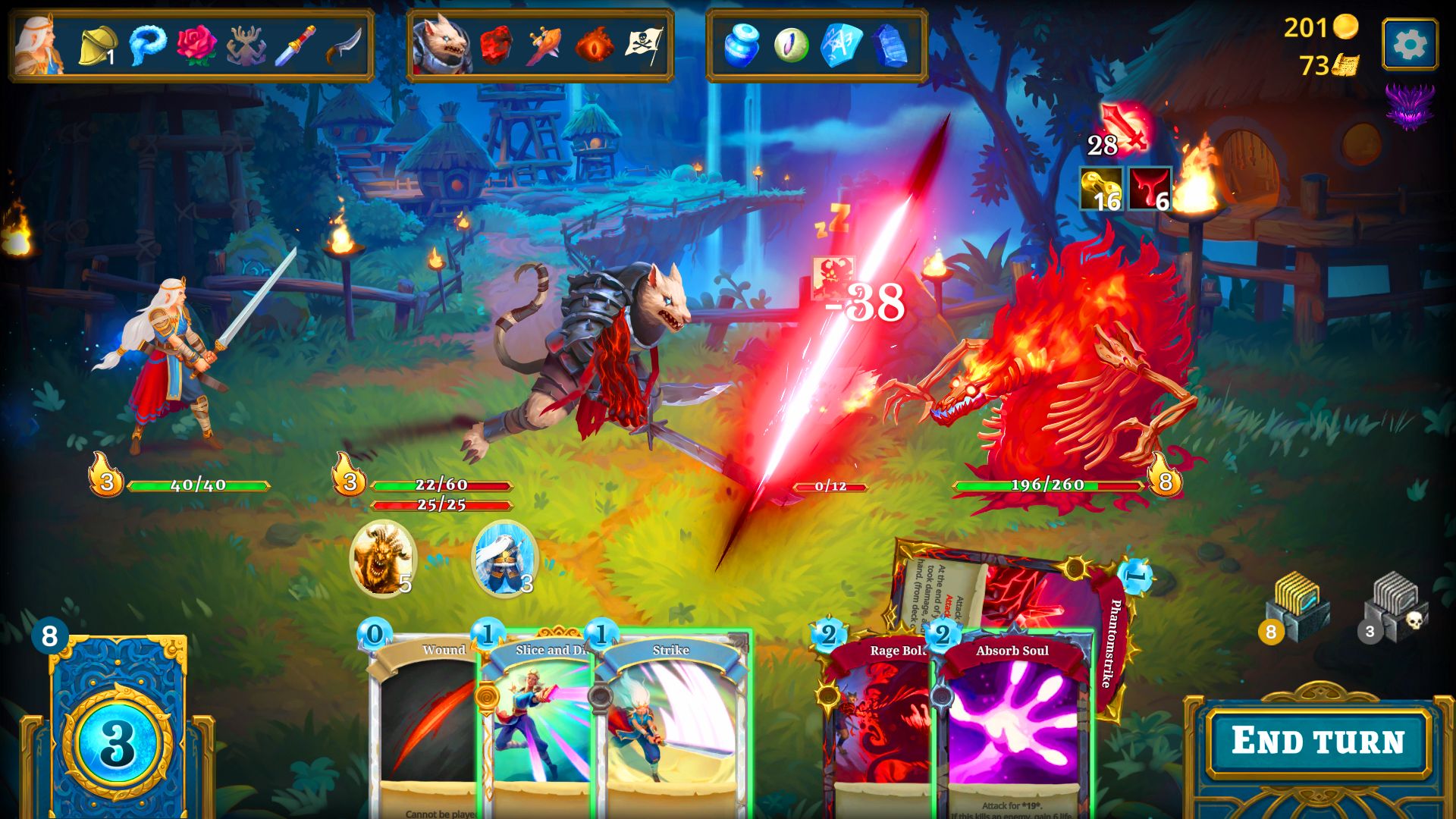
The Civilization style map exploration is a wonderful addition to the deck building gameplay. Players are limited to five paintbrushes to uncover tiles around them. For more precise and efficient work, inks reveal a smaller amount of space. The goal is to strategically use the paintbrushes and inks to reach major points of interests in hopes of uncovering buffs, rewards, and fights that will make the boss battle easier. It’s a game of risk of reward with a bit of luck thrown in. Players must constantly consider the benefits of getting in a fight with many regular or elite encounters in hopes of getting enough inks and equipment to beat the run, without being so crippled that it’s impossible to clear the boss. It’s an amazing level of complexity considering most overworlds in deck builders are simple paths with only one or two options.
The UI is probably the weakest part of Roguebook. There are clear cues taken from previous competitive card games and deck builders. On the flip side, not all of the UI design translates clearly. There is a lot of bloat that could have been slimmed down, such as the extra step to access the shop or the lack of a keybind to automatically loot all items. Some advanced functions like filters and counts for certain abilities would have been nice. It would be easier to see a breakdown of the current deck, choose cards to pair with gems, and figure out which item should be equipped on which hero.
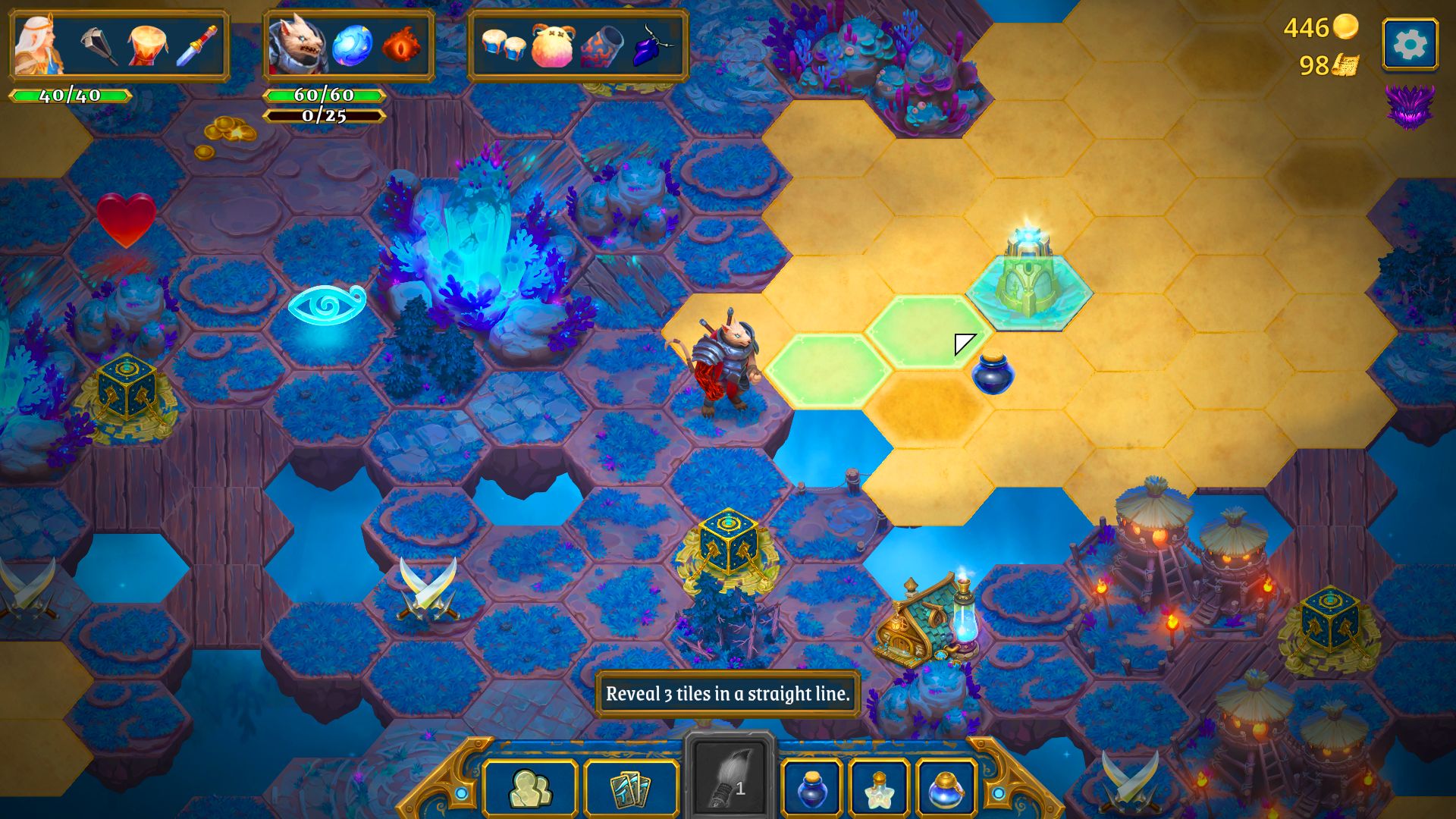
Visuals
Roguebook has an excellent art style. The game has a fantasy storybook art style with the slightest splash of Civilization. The old school painted art look is also a wonderful nod to Garfield’s Magic: The Gathering’s art style.
Audio
The audio experience isn’t expansive, but it is solid. The sound effects are good, though a few extra would have helped break up some of the monotony. The soundtrack is an enjoyable background to the game without being particularly intrusive. There isn’t much voice acting, as it’s mostly a few lines for each character. Regardless, they are done well and would easily work for larger indie titles.
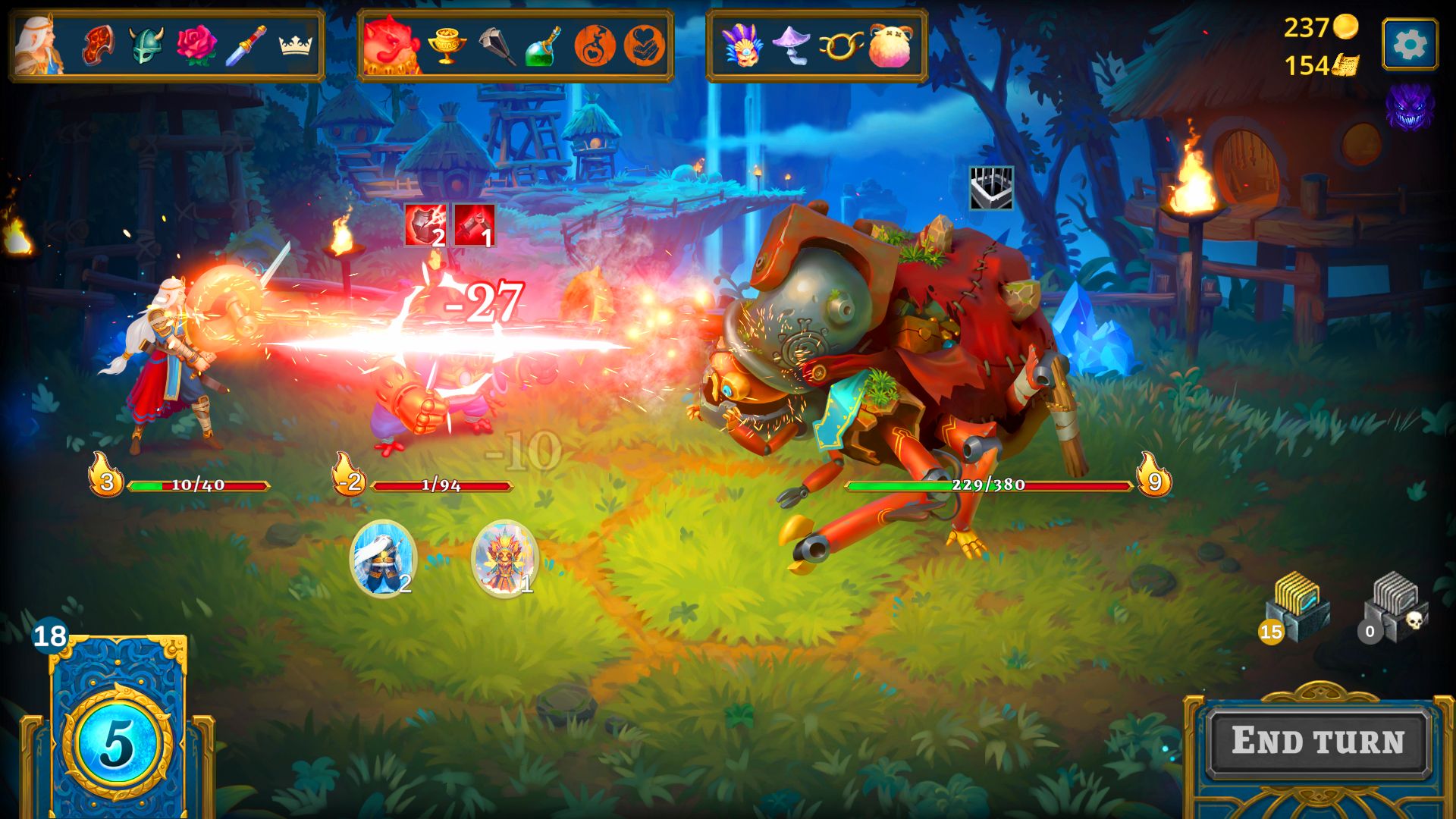
Overall
Roguebook is an excellent deck building game that throws in just enough twists on the popular indie genre to make it stand out in a crowded space. I haven’t been this addicted to a game for a while. The deck building is solid due to the large deck design and a good selection of cards. Combat is deep and very rewarding, and the Civilization style overworld is a home run. While the UI and graphical issues need to be polished off, Roguebook is an excellent choice.
Capsule Computers review guidelines can be found here.

